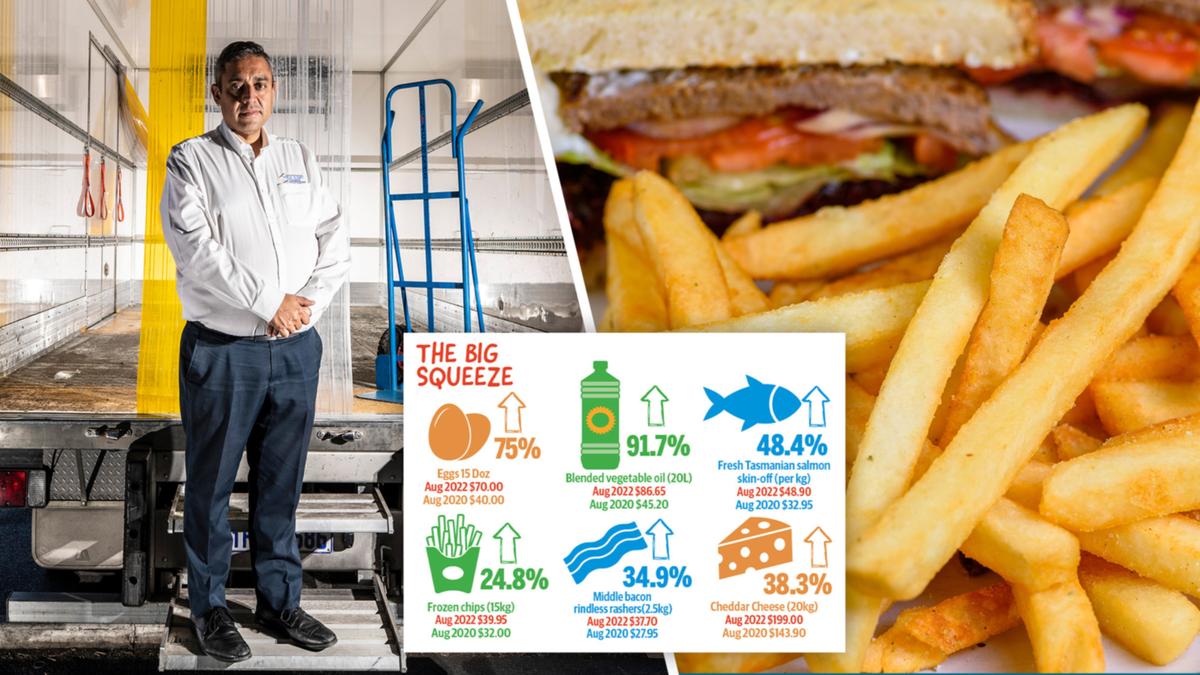WA’s biggest independent food distributor has warned consumers to expect further hikes at their favorite pubs and restaurants – and eventually supermarkets – as supply chain pressures and skyrocketing input costs continue to drive up prices.
The price of vegetable oil supplied by New West Foods to hundreds of eateries across WA has almost doubled since August 2020, with eggs up 75 per cent over the same two-year period.
Salmon has jumped 50 per cent while cheese and bacon are both up around 35 per cent.
Even the humble frozen chip – a staple of takeaway menus everywhere – has climbed 25 per cent.

The majority of those price rises have come in the last 12 months as myriad factors combined to create what New West Foods managing director Damon Venoutsos said was the “perfect storm” for food costs.
Mr Venoutsos described distribution businesses like his own as the “canary in the coal mine” for price increases because – unlike supermarkets and fast-food chains – they did not enter into long-term agreements with suppliers.
“Most of the time we get 30 days’ notice from our suppliers that prices are going up whereas your big retailers (such as Coles and Woolworths) and quick service restaurants (such as KFC) can lock in their prices for anything up to six months ,” he said.
“Often we’re using the exact same supplier so while I don’t know when (the supermarkets) are going to catch up, it’s inevitable they will have to.”
Mr Venoutsos said prices had increased “very quickly and very dramatically” in recent months and that practically no food type had been spared, although some – such as fish, meat and dairy – had been impacted worse than others.
The biggest riser – vegetable oil – is in short supply globally, with exports largely cut off from war-torn Ukraine which traditionally produces 50 per cent of the sunflower oil used around the world.
New West Foods clients include Optus Stadium, King Edward Memorial and Sir Charles Gairdner hospitals and hundreds of restaurants and cafes.

Mr Venoutos said takeaway-oriented restaurants such as fish and chip shops and pizzerias were among the hardest hit with practically all their staple ingredients surging in price.
Independent Food Distributors Australia chief executive Richard Forbes listed half a dozen reasons for the escalating costs including clogged ports globally, COVID lockdowns in China, a shortage of sea containers and spiraling domestic energy and transport prices.
Last month, Manjimup-based WA Chips – the State’s only local manufacturer – revealed its gas bill was up $400,000 (60 per cent) compared to the previous year.
Mr Forbes said additional costs were being incurred at every step of the production, distribution and storage supply chain.
“Anyone that refrigerates product in bulk – which would be practically all distributors – have seen those costs go from around $50,000 to $80,000,” he said.
Labor shortages were also a major issue, with Mr Forbes estimating there were 160,000 vacancies between the agriculture, transport, warehousing and hospitality sectors.
.
